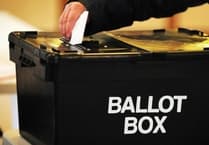FORMER Foreign Secretary Boris Johnson broke House of Commons rules by failing to declare a 20 per cent financial interest in a house near Winsford within 28 days of acquiring it, a Commons committee ruled on Monday.
The Committee on Standards accepted that Mr Johnson had not intended to conceal his interest and had apologised, but had shown “an over-casual attitude” to parliamentary rules.
The reprimand follows a similar finding last December when Mr Johnson, whose father, Stanley, lives on Exmoor, was ordered to apologise over the late declaration of £52,000 book royalty payments.
Mr Johnson’s brother Jo, Conservative MP for Orpington, was also found to have made a late declaration on his share of the Winsford property.
He had admitted the fault and had been allowed to correct his financial interests register by way of a procedure intended to rectify minor breaches.
It was decided that Boris Johnson should not be given the same opportunity because he had failed to check his entry properly during the previous probe into his book royalties
In its report on Monday, the committee said that Boris Johnson acquired an interest in the West Somerset property in January 2018 but did not register it for another 12 months .
He said that he had misunderstood the rules relating to the threshold above which an interest had to be declared.
The Standards Committee added that Mr Johnson’s failure to declare the property interest in time, revealed a “pattern of behaviour” regarding respect for rules on declarations.
Mr Johnson had given an assurance as part of a previous investigation, that his interests declaration was up to date but this “proved not to be the case”.
The committee recommended that Mr Johnson should meet the registrar of members’ financial interests to receive a full briefing on his obligations as an MP to register all relevant interests.
Any further breach could call for “more serious sanctions”.
In a letter to the Parliamentary Commissioner for Standards, Kathryn Stone, Mr Johnson said he “accepted full responsibility for the error”.
He added: “Having now carefully reviewed the rules again I do feel that they could be clarified so as to reduce the possibility of confusion.”




